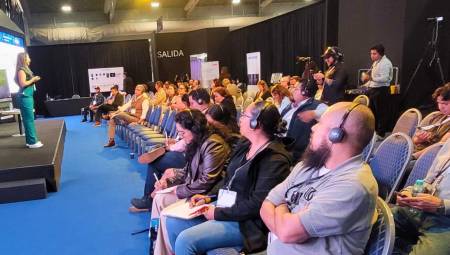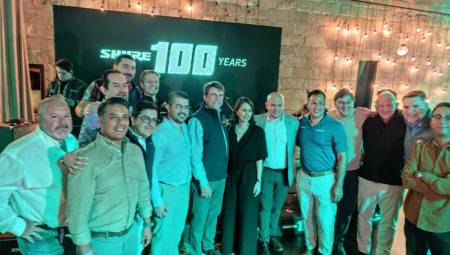 International. "The Spanish language has a tremendous challenge ahead of it. It is necessary that together we place Spanish where it deserves, also in the digital world". With this call, José María Álvarez-Pallete, president of Telefónica, has urged the development of artificial intelligence based on the Spanish language. He has done so during his participation in the VIII Congress of the Language held in Córdoba, Argentina.
International. "The Spanish language has a tremendous challenge ahead of it. It is necessary that together we place Spanish where it deserves, also in the digital world". With this call, José María Álvarez-Pallete, president of Telefónica, has urged the development of artificial intelligence based on the Spanish language. He has done so during his participation in the VIII Congress of the Language held in Córdoba, Argentina.
He has also urged to "understand how the synthetic language with which we already relate is being forged" when we ask the voice assistant the news of the day, the weather, traffic information, the result of a football match, when using messaging applications, or when translating texts using digital translators. José María Álvarez-Pallete has pointed out that "it is urgent to do so by developing artificial intelligence based on our language, such as Telefónica's Aura".
The president of Telefónica explained that, after Chinese, Spanish occupies the second position by importance. Spoken by 480 million people as a first language, it exceeds English by twenty percent in number of speakers. However, when reviewing what is the language in digital content "Spanish falls to the fourth position and English rises to the first, with a weight ten times greater than that of our language," he said.
On the other hand, he has indicated that "our language is also exposed to other risks". The reason for this phenomenon is found in the data with which an artificial intelligence learns to speak. "The less accurate, the more erroneous or less relevant they are, the more errors, limitations or even biases will be incorporated into synthetic language. This poses a threat to the future of our language that we cannot ignore if we want to ensure the use of Spanish by future generations."
The president of Telefónica has also analyzed how language errors spread at high speed and how artificial intelligence learns from them. He has used examples such as cocreta, which appears in nearly eighty thousand search references; the erroneous use of the imperative of the verb to say, to say it, which yields more than two million results, while its correct form, say it, shows just over three thousand. Words of less common use, disappear or yield residual results.
Abbreviations and inaccuracies when using messaging apps popularize the use of spelling or grammatical inaccuracies. "Cultural gender biases are present in the searches," said José María Álvarez-Pallete. Some of the examples he has used: if a user writes surgeon in English, the usual result of the translator is surgeon, in masculine; if the user types nurse, the result will be nurse, in female; if you type engineer, engineer appears, in masculine and if you write nanny, the result will be nanny, in feminine.
Regarding the impact that the most common word processors have on the configuration of the new synthetic language and its impact on the correct use of the language, he stressed that many of these processors "fail to recognize correct words" and, in addition, when this happens, "propose to correct and replace them, thus giving rise to an impoverishment and thinning of the lexicon, and this is the time to address it, as in the coming years hundreds of millions of machines will speak Spanish."
Finally, he underlined the essential role of the Academy and recalled that "the change of era requires new rules and new rules bring new ways of approaching problems". The president of Telefónica has insisted that "the synthetic language learns and we have tools, knowledge and experts to teach it properly".









































































































